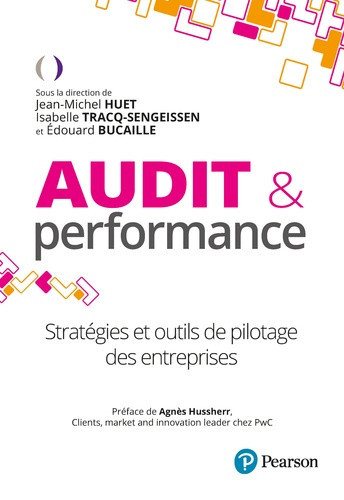Audit and Performance - Strategies and tools for managing companies
The alumni bookstore keeps you informed of the latest publications within the network, all genres included.

The current health crisis: driver of digital, social and environmental changes
Many businesses undergo audits, which are a genuine source of opportunity for taking a critical and constructive look at the company’s management and applying optimisation solutions for its processes. The global health crisis has become an incontestable driver for digital, social and environmental changes and has pushed businesses to review these strategies so they can ensure a tactical direction that is adapted and adaptive to the current context. “Today more than ever, guidance and reporting are core concerns for company executives. It is vital that businesses can obtain reliable real-time data, perform simulations and understand how the impact of this crisis affects their financial and accounting outlook, particularly on the value of tangible and intangible assets and on counterparty risks,” said Jean-Michel Huet, the book’s co-editor. The crisis has also raised awareness among companies with regards to their social responsibility, their contribution to sustainable development and the meaning of their economic models. “The current transformations have a particular impact on auditing and performance. With the current CSR stakes, new international challenges and the digital transformation, it is essential that businesses understand these dynamic factors so they can continue forward in the post-Covid world,” Jean Michel Huet said. That is why in the coming years, extra-financial reporting, in particular calculating a company’s environmental and societal footprint, will no longer be secondary information but essential data. “Never before have we had access to so much financial and non-financial information to help with decision making. Nonetheless, we still have questions on the reliability of this information. Auditing is the key to trusting and guaranteeing the comparability of this data, regardless of the size of the company in question,” said Isabelle Tracq-Sengeissen, co-editor of the book.
What changes to auditing have occurred in companies?
Divided into two parts, the first part of this book looks at the different aspects of performance management with the tools provided to companies: dashboards, war rooms and war games, International Financial Reporting Standards and the impact of their evolution, human resources monitoring and optimisation, monitoring of commercial performance etc. The second part focuses more specifically on the changes in auditing such as the expansion of IFRS performance indicators, the impact of auditing for small businesses and SMEs, the digital revolution challenges and the need to respond to the societal performance criteria placed on companies. “In an economic context defined by volatility and growing uncertainty, auditors are currently questioning and wondering about their real performance. This introspection allows them to concentrate on the best way to respond to their customers main needs and expectations,” said Edouard Bucaille, the third co-editor of the book.
This thirteen edition, co-written by NEOMA Alumni and NEOMA Business School discusses the stakes and tools behind financial reporting for the purpose of evaluating the performance and resilience of companies as well as the recent changes in the auditing profession. To purchase this book, click here! All copyrights are donated to the Fondation Neoma |
|

Comments0
Please log in to see or add a comment
Suggested Articles
